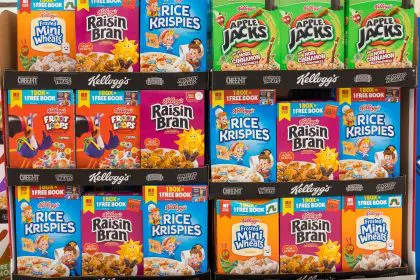Small businesses are often the heart of local economies, yet so many struggle to stay afloat beyond the first few years. While some flourish and grow into long-term success stories, others shut their doors without ever realizing their full potential. This gap between surviving and folding isn’t just about luck — it often comes down to strategy, mindset and adaptability.
The resilience factor
Understanding why some small businesses endure tough times while others don’t starts with one word: resilience. Business owners who anticipate challenges and respond quickly are more likely to adapt to change. Whether it’s a shift in customer behavior, economic downturn or supply chain disruption, those who keep their heads up and innovate tend to stay in business longer.
Resilience doesn’t mean avoiding problems — it means bouncing back. For example, during economic slumps, some restaurants pivoted to delivery and online orders, while others simply waited for foot traffic to return. Guess which ones survived?
Financial discipline is non-negotiable
Small businesses that track every dollar, plan for lean periods and resist overspending are more likely to survive. Poor cash flow management is one of the most common reasons companies fail. Surviving businesses typically build a buffer — even a small one — to ride out emergencies or slower sales periods.
In contrast, companies that overextend themselves with unnecessary expenses, high-interest loans or unsustainable marketing costs often find themselves overwhelmed. The ability to say “not now” to purchases and make data-driven financial decisions can make all the difference.
The leadership mindset
Owners who are deeply involved and flexible in their leadership style often lead thriving businesses. They listen to customer feedback, adapt their products or services and take calculated risks. They don’t just love their product — they love solving problems for their clients.
Leadership is also about knowing when to ask for help. Successful small business owners seek out mentors, industry networks or community programs. This willingness to learn from others can unlock solutions that might otherwise be overlooked.
Embracing technology and trends
Companies that ignore technology quickly fall behind. Whether it’s a digital payment system, online booking tools, social media engagement or website optimization, technology plays a key role in keeping businesses visible and relevant.
Surviving businesses watch trends — not to blindly follow them, but to learn from them. For example, when eco-friendly products gained traction, small retailers who adapted saw a boost in loyal customers. Those who ignored the movement struggled to keep up with changing expectations.
Customer relationships beyond transactions
Businesses that invest in relationships rather than just sales create loyalty that can’t be bought. A coffee shop that remembers your order, a bookstore that gives honest recommendations or a boutique that texts when your favorite item is back in stock — these small touches build community.
Companies that fold often forget the customer’s long-term value. They focus on getting the sale today without thinking about earning repeat business. In contrast, thriving businesses create emotional connections, which translate into sustained support.
Smart marketing strategies
Surviving small businesses don’t just market — they market smart. They focus on their target audience and communicate clearly what makes them different. Whether through word of mouth, email campaigns or social media storytelling, they know how to draw people in without overspending.
Folding businesses often burn through budgets trying to reach everyone. The lack of a focused strategy leaves them invisible in a crowded market. Clear, consistent messaging that highlights real benefits — not just features — gives small businesses a competitive edge.
Building solid team culture
It’s not just the owner — it’s the team. Businesses that survive often build a culture where employees feel valued and empowered. Even a team of three can thrive if communication is clear, roles are respected and everyone understands the mission.
On the other hand, companies with high turnover or toxic work environments lose time and energy constantly rehiring and retraining. Happy employees tend to go the extra mile, and their satisfaction shows in how they treat customers.
Planning beyond today
Surviving businesses plan for tomorrow even when today feels chaotic. They set short- and long-term goals, measure progress and remain open to feedback. Whether it’s expanding to new markets or refining current offerings, they always think ahead.
Many businesses fold because they only focus on the day-to-day grind. Without a roadmap, they end up directionless and easily discouraged. Strategic planning doesn’t need to be complex — just intentional.
The emotional cost of giving up too soon
Sometimes, the biggest difference between surviving and folding is the willingness to keep going. It’s not always about money or marketing — it’s about pushing through the discomfort of uncertainty. Small business owners invest not just time and money, but heart.
That emotional investment makes giving up feel devastating. But those who hang on a little longer, try one more idea or connect with one more customer often discover a breakthrough right on the other side of frustration.
Lessons from survivors
There’s no one-size-fits-all answer for small business success, but the patterns are clear. Resilience, discipline, connection and adaptability set survivors apart. Every decision counts. Every customer matters. And every challenge offers a chance to grow stronger.
Businesses that last aren’t always the ones with the most money, the best product or the perfect plan. They’re the ones that keep showing up, learning and believing they can make a difference — even when the odds are high.
Let their example be a reminder: success is possible, and it’s often just one right move away.












